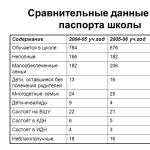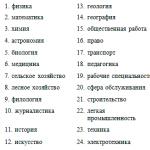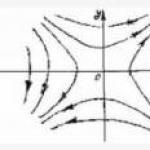Key items: Physics; Engineering principles; Construction; Assemblies of electronic devices; Computer science
Tuition fees (average in Russia): 164,000 rubles
Description of the profession:
* tuition fees are indicated for 4 years of full-time undergraduate studies.
Features of the profession
A radio technician is a household, colloquial designation of an instrument-making specialist. The official name of the specialty is radio apparatus engineering.
This profession is related to the profession of radio mechanics. The difference is that a radio technician can not only repair electronic devices and systems, but can also design them independently.
If for the repair and maintenance of radio electronics, primary vocational education is usually (although not always) sufficient, then hardware engineering requires at least a secondary specialized education (technical school level).
A radio technician can be responsible for organizing and assembling radio technical devices and systems, and adjusting them according to the existing technology and technical documentation. May also participate in the development of new models of devices, their calculation and design.
Electronic technology is constantly evolving through the efforts of such specialists and development engineers. But the development technologies themselves do not stand still. For the design of devices, for planning the assembly and installation technology, modern specialists use special computer programs, the so-called computer-aided design systems.
Newly developed devices, assemblies and systems are always subject to certification tests. This is also done by radio technicians.
The profession of radio engineering, like any other, leaves a special imprint on a person. For example, a radio technician has a special relationship to the devices that surround us in everyday life.
He, like no one else, can appreciate the quality of a TV or DVD player. Unlike an ordinary TV lover, a radio technician is able to appreciate not only the image quality, but also the beauty of engineering, the build quality.
As a rule, people come to this profession, since childhood, fascinated by radio electronics, enjoying the design of radio transmitters or robots, hours of fiddling with boards, parts and working with a soldering iron.
Workplace
A radio technician with a diploma of secondary vocational education can work in production, in a design bureau, repair shops, etc. as an installer, controller of electronic devices, technologist and even an electronic engineer.
Salary
Salary range as of 11/21/2017
Russia 40,000 rubles.
Important qualities
The profession of a radio mechanic presupposes interest in technology, engineering ability, the ability to manual labor, good intelligence, good memory, ability to concentrate, and perseverance.
Low vision and impaired fine motor skills are contraindications to this profession.
Knowledge and skills
A radio technician must have a good understanding of the laws of physics and engineering principles on which the operation of devices is based, know and be able to use the standards for the design, installation and assembly of radio electronic devices.
It is necessary to be able to read and create electrical circuits, instrument circuits, be able to work with a soldering iron, carry out diagnostics and repairs, own computer design tools.
Where do they teach
Secondary specialized education in the specialty "Radio apparatus engineering" can be obtained at a college or technical school.
Good day, members of the forum. I would like to ask you the following question. I am a 4th year student majoring in radio engineering. I chose deliberately, according to the mindset and personal preferences, everything was in order. I have completed my studies so far, and soon I will receive a diploma, but there is no particular zeal in mastering the profession. Many times I tried to fight this (during periods of motivational upsurge), took books, looked for various thematic forums, articles, tried to abstract from everything that distracted, but all this rested and rests on several things. Finding something suitable to start learning is difficult. An area that is more or less interesting (reception and processing of signals, DSP) is deprived of literature, which smoothly introduces into the course of business. Just today I entered the request "DSP" or "signal processors" on youtube with a desire to watch some lessons, but I could not find anything in Russian. Yes, I can watch lectures in English, but the very fact of the lack of information is depressing. There are very few thematic sites where information could be gleaned, and if they exist, then they are so antediluvian that it hurts your eyes at one glance. No developed community, nothing that could stir up interest. Even when I manage to come to terms with it, I remember the number of vacancies. And everything is not very fun there.
It is worth saying that the university has fixed me in one enterprise, where I do research work, while simultaneously performing simple (not for beginners) tasks. Most of them are programming algorithms for receiving signals from satellites, etc. I had to make programs with a windowed interface in RAD Studio, which, in principle, fascinated me. In addition, programming was interesting for me since school, but when I decided that I would go to such an area as radio engineering, I dropped everything related to IT and did not develop much there.
For the last half year, I have been rushing about in doubts - to come to terms with the inconveniences that are in my current profession, or to go where my soul lies. (I'm afraid to speak with confidence, because once I was sure that I was not mistaken in choosing radio engineering). During the fall, I completed two online courses for a certificate with honors in C ++ and computer architecture. I understand that this is the very starting base. The second course is completely introductory. But I didn't feel any dissonance. I performed tasks with enthusiasm and on time. What is this, if not an inclination and interest in this area? The abundance of information is also pleasing. For self-education, it is a paradise. Take it and learn!
I ask you for advice on what to do? Should you give up and go where you can develop productively and with interest, or should you stay where you are with some discontent and a constant struggle with yourself?
Beginning: 25000 per month

Experienced: 38000 monthly

Professional: 65000 monthly
* - information on salaries is roughly based on vacancies on profiling sites. Salaries in a specific region or company may differ from those shown. Your income is greatly influenced by how you can apply yourself in the chosen field of activity. Income is not always limited only by the fact that you are offered vacancies in the labor market.
The demand for the profession
The demand for radio engineers is associated with the presence in Moscow and other large cities of a large number of organizations in the radio engineering industry, where there is an urgent need for qualified technical specialists, engineers and managers. At the same time, specialists with knowledge of a foreign language (mainly English) are in great demand.
Who is the profession for?
Professionally important qualities
- technical intelligence;
- high level of abstract and logical thinking;
- the ability to work with your hands;
- a tendency to work independently;
- technical intuition;
- ingenuity;
- perseverance.
Working conditions
The work of a radio engineer is on a regular basis, the salary is calculated depending on the official salary. In his activities, a radio engineer uses special clothing in accordance with the requirements of the regulations of the work performed.
Career
The career development of a radio engineer may consist in specialization and development of related professional fields. Since radio engineering and microelectronics are developing rapidly, it is possible to master the newly emerging specialties within the existing profession. In the future, you can also master related professions, for example, the profession of design engineer, design engineer.
Responsibilities
- conducting a preliminary feasibility study of projects of radio technical devices and systems;
- calculation and design of parts, assemblies and devices of radio engineering systems in accordance with the terms of reference using design automation tools;
- development of design and technical documentation, registration of completed design and construction works;
- control of compliance of developed projects and technical documentation with standards, specifications and other regulatory documents;
- implementation of development results into production;
- preparation of operating instructions for technical equipment and software;
- participation in verification, commissioning, adjustment and assessment of the state of equipment and configuration of software tools used for the development, production and tuning of radio devices and systems;
- participation in the installation, commissioning, testing and commissioning of prototypes of parts, assemblies, systems and products of radio engineering devices and systems.
in the field of maintenance and repair of radio electronic equipment:
- organization and implementation of assembly and installation of radio engineering systems, devices and blocks in accordance with technical documentation;
- tuning and adjustment of radio engineering systems, devices and blocks;
- carrying out standard and certification tests of assemblies and blocks of a radio-electronic product;
- operation and maintenance of radio electronic equipment;
- repair and adjustment of radio engineering devices for various purposes;
- participation in the preparation of applications for the necessary technical equipment and spare parts, preparation of technical documentation for repairs.
Description
Bachelors in radio engineering are trained to perform highly professional duties in the field of:
- implementation of an early comprehensive analysis of the economic, interface and technical properties of programs for the production and development of radio equipment and their systems;
- preparation and study of the initial information used in the calculation of physical characteristics and design of elements, devices and assemblies;
- integrated operation and high-quality service maintenance of electronic devices;
- restoration of operability and debugging of settings of radio engineering devices;
- formation of requests for the supply of the necessary technological equipment and spare parts;
- creation of technical documents for repaired devices;
- development of recommendations for the service and use of software equipment and tools;
- assessing the timeliness and relevance of the designed radio engineering facilities;
- coordination and arrangement of the production process;
- implementation of supervisory functions for safety at production sites and the quality of manufactured devices.
Who to work
The bachelor will be able to work as an engineer in the direction of: radar; telecommunications; communication; microelectronics; circuitry; electricians; radio; At production sites, he can perform control duties over the quality of production of electronic equipment and devices. Bachelors can often be found among programmers-developers, radio installers and radio electronics engineers. Places of professional activity are enterprises that manufacture radio, television equipment and instruments. Thanks to the development of the telecommunications sector, a large number of organizations have emerged that develop telecommunications and satellite systems. Their staff also regularly requires qualified personnel.
A radio technician is a household, colloquial designation of an instrument-making specialist. The official name of the specialty is radio apparatus engineering.
This profession is related to the profession of radio mechanics. The difference is that a radio technician can not only repair electronic devices and systems, but can also design them independently.
If for the repair and maintenance of radio electronics, primary vocational education is usually (although not always) sufficient, then hardware engineering requires at least secondary specialized education.
Like any other technology, electronic equipment is undergoing changes, it is being improved. To assemble an electronic device, you need to perform a lot of manipulations. Installation operations (electrical connection of individual equipment elements) are final. This procedure is performed by radio technicians.
They are engaged in the assembly and tuning of radio devices and electronic equipment. The radio technician installs external radio components on the boards (special diagrams with designated places of fastening of parts and the location of the wires), performs node assembly and electrical installation according to wiring and schematic diagrams, assembles units on the chassis and inter-node electrical installation, using soldering, gluing, wire and printed wiring.
Personal qualities
This profession is for those who like working with equipment, digging into small details. For the attentive and diligent.
Education (What you need to know?)
Fundamentals of radio and television technology, principles of operation and operation of equipment, rules for repairing, tuning and adjusting radio and television equipment, rules for using control and measuring devices.
The most important thing in this work is to understand how the processes occur within this or that apparatus, to be able to think logically. After all, radio magnetic waves and radio beams are invisible and intangible things, however, you need to be able to imagine their movement and propagation.
Place of work and career
It is not difficult to find a place - radio engineering services are needed today at any medium or large enterprise. These are factories producing various equipment (from household appliances to military ones), scientific research institutes, medical institutions, video and audio salons, and television studios. Many college graduates go to work in the booming field of cellular communications, where there is a lack of specialists who understand radio electronic equipment.
Related professions:
Where to study?
| Universities by specialty | Specialty | Forms learning |
Cost per year (rubles) |
Checkpoint score (2018) |
Ural Technical Institute of Communications and Informatics (branch of GOU VPO "SIBGUTI" in Yekaterinburg) |
Radio engineering |
Full-time (4 years) |
free (8 seats) |
|
Graduate School of Electronics and Computer Science |
Full-time (5 years) |
free (16 seats) |
||
Electronic systems and complexes |
Full-time (5 years) |
free (45 seats) |
||
Institute of radio electronics and information technologies - RTF |
Radio engineering |
Full-time (4 years) |
free (40 seats) |
|
| Colleges and technical schools by specialty | Specialty | ||





